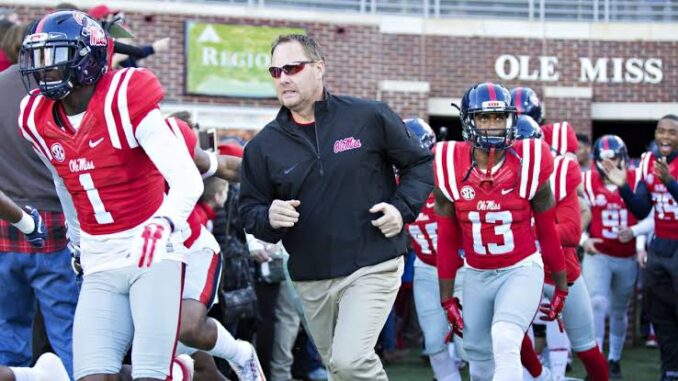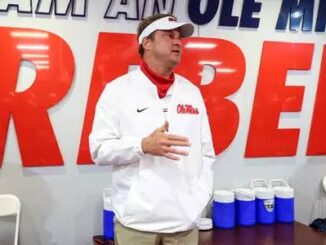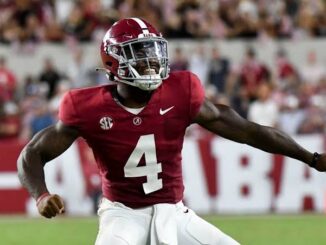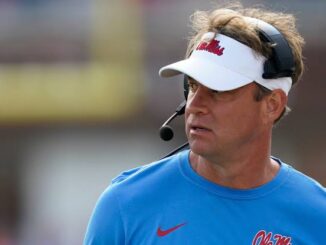
NCAA Wins Legal Case Over Ole Miss Violations During Freeze Era: A Turning Point for College Sports
In a landmark ruling, a federal court has upheld the NCAA’s decision to penalize the University of Mississippi (Ole Miss) over recruiting violations that occurred during the tenure of former head football coach Hugh Freeze. This legal victory, delivered earlier this week, marks a significant moment not just for Ole Miss but for the entire landscape of college sports. With major implications for recruiting practices, institutional responsibility, and the NCAA’s enforcement authority, this case could reshape how schools, coaches, and athletes navigate the increasingly complex and scrutinized world of collegiate athletics.
### Background of the Case
The case stems from violations that occurred under the leadership of Hugh Freeze, who coached Ole Miss from 2012 to 2016. The NCAA investigation focused on numerous infractions, including improper contact with recruits, use of “boosters” to influence prospects, and other unethical recruiting practices. These violations occurred during a period when Ole Miss was trying to elevate its football program to national prominence, including a historic top-10 ranking and two Sugar Bowl appearances.
The NCAA’s ruling against Ole Miss in 2017 was severe, resulting in a ban on postseason play for one year, the loss of scholarships, and probationary status. The university appealed the ruling, arguing that the penalties were excessive and that the violations were not severe enough to warrant such drastic measures. However, the recent court decision upheld the NCAA’s original sanctions, affirming the governing body’s stance on the case.
### The Significance of the Ruling
The court’s decision to uphold the NCAA’s penalties sends a strong message to the world of college athletics. First, it reinforces the power and authority of the NCAA to enforce rules, even when facing legal challenges from major institutions. In recent years, the NCAA has faced criticism for being inconsistent or lenient in its enforcement of rules. This case, however, proves that the organization will hold schools accountable for violations, particularly when those violations impact the integrity of the recruiting process.
For Ole Miss, this ruling is a difficult blow. The program, which had hoped to rebuild after the Freeze era, will now continue to carry the stigma of those violations for the foreseeable future. Despite recent improvements, including the hiring of new head coach Lane Kiffin, the program has yet to fully escape the shadow of its past. The NCAA’s ruling ensures that Ole Miss must continue to work under the burden of a tarnished reputation and diminished resources.
But the case’s implications stretch far beyond Ole Miss and its immediate stakeholders. This ruling signals to other schools that the NCAA is committed to enforcing its rules regardless of how powerful or influential the institution may be. In a world where recruiting scandals and ethical questions often dominate headlines, the message is clear: no school is immune from scrutiny, and no program is above the law.
### Impact on College Football Recruiting
Perhaps the most immediate and profound impact of this ruling will be felt in the recruiting world. College football recruiting has long been a high-stakes, fast-paced arena where unethical behavior—such as paying recruits, making improper benefits available, or using boosters to sway decisions—has sometimes slipped through the cracks. While the NCAA has long maintained rules against such behavior, enforcement has often been inconsistent.
This ruling could signal a shift in how recruiting violations are handled across college sports. Schools may become more cautious in their recruiting practices, ensuring that every move they make is above board and compliant with NCAA regulations. This could lead to a more transparent and ethical recruiting process, where coaches and administrators are held to higher standards.
Moreover, the ruling could encourage the NCAA to increase its oversight of programs and implement stricter enforcement mechanisms. The Freeze-era violations at Ole Miss were seen by some as an example of the “Wild West” recruiting environment that can exist when there is insufficient regulation. The NCAA’s ability to penalize Ole Miss and win in court could pave the way for a tougher approach to compliance across the entire college sports landscape.
### The Broader Picture: Institutional Responsibility
At the heart of the Ole Miss case is the question of institutional responsibility. The NCAA’s decision highlights the notion that schools are accountable not just for the actions of individual coaches or players, but for the overall culture and practices within their athletic programs. During the Freeze era, many of the violations were attributed to the actions of coaches and boosters, but the NCAA’s ruling suggests that Ole Miss, as an institution, failed in its responsibility to monitor and control its football program effectively.
This aspect of the case reinforces the importance of compliance departments and governance structures within universities. Schools will likely invest more in ensuring that their athletic departments adhere to NCAA rules and that any potential violations are detected early. This focus on institutional responsibility is particularly important as the landscape of college sports continues to evolve, with increasing amounts of money flowing into programs and more pressure to win at all costs.
### The Future of College Sports
This case also raises important questions about the future of college sports as a whole. The NCAA’s role has come under intense scrutiny in recent years, with critics arguing that the organization is too restrictive and out of touch with the modern realities of college athletics. The rise of NIL (Name, Image, and Likeness) deals and the push for athletes to receive compensation for their contributions to college sports have added further complexity to the issue.
However, as this legal victory demonstrates, the NCAA still holds significant authority when it comes to ensuring that programs play by the rules. The case sends a clear message that the governing body will not hesitate to penalize programs that violate ethical and recruiting standards, even if those violations happen in a high-profile setting.
Ultimately, this case could be a turning point in how college sports navigate the balance between competitive success and ethical responsibility. It may encourage programs to re-evaluate their practices and reconsider the lengths to which they are willing to go to build a winning team. As the landscape of college sports continues to change, the lessons learned from the Ole Miss case will resonate for years to come.
In conclusion, the NCAA’s legal victory over Ole Miss is a moment of reckoning for the college sports world. It affirms the NCAA’s authority, underscores the importance of institutional responsibility, and highlights the evolving nature of college recruiting. As the sports world watches closely, the case will undoubtedly shape the way schools approach compliance, ethics, and competition in the years ahead.



Be the first to comment